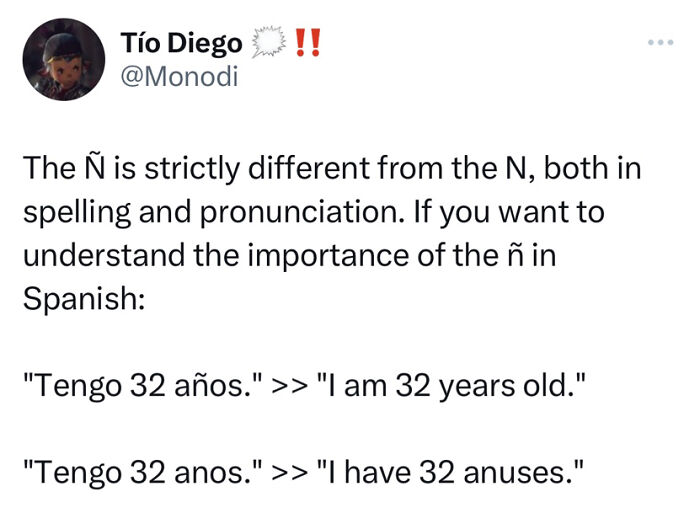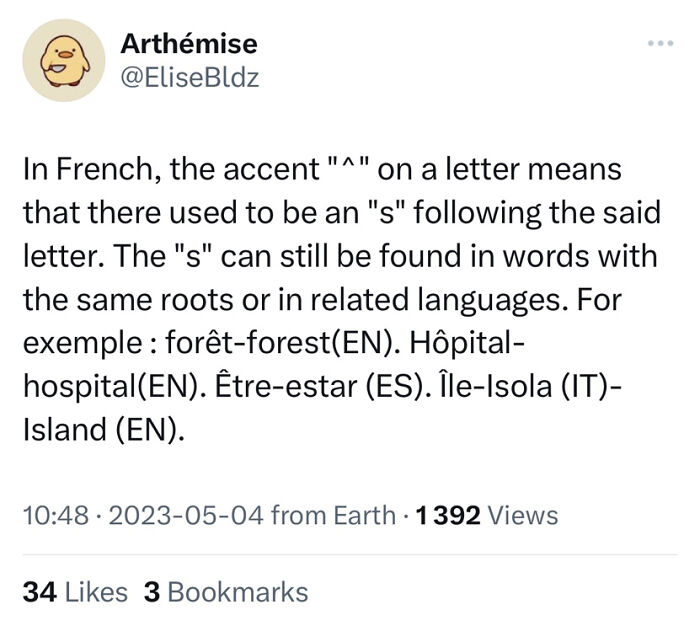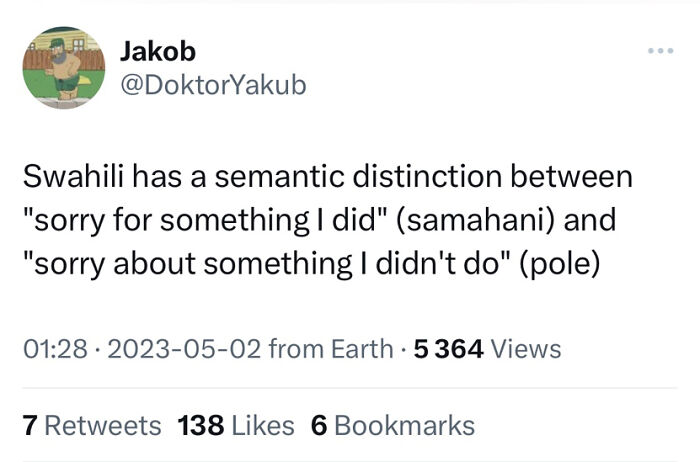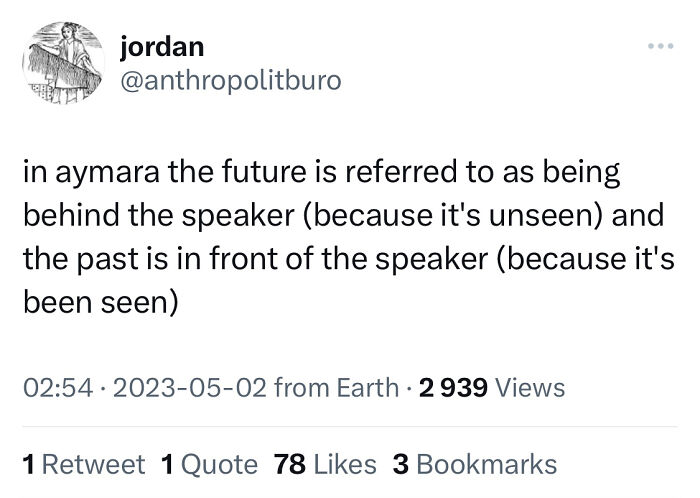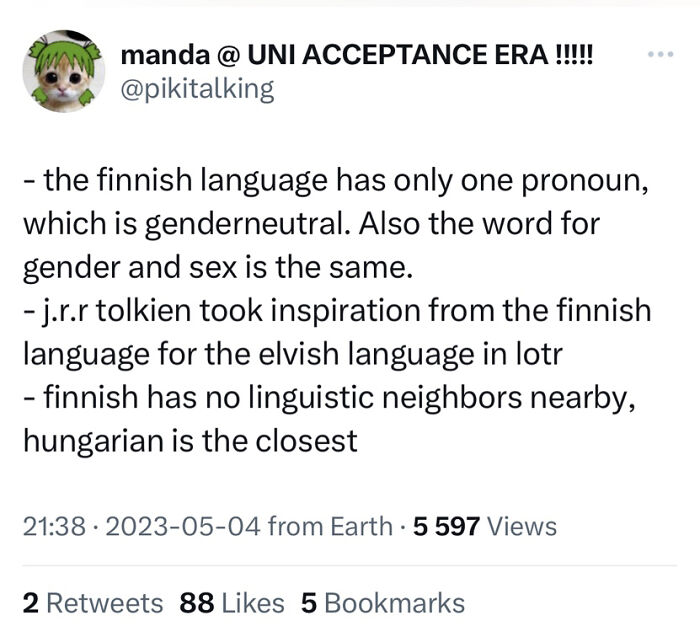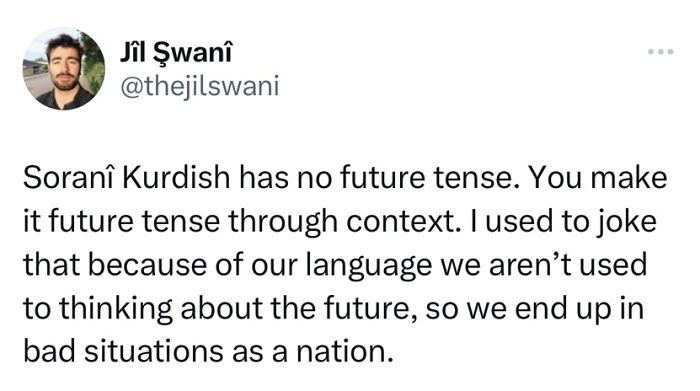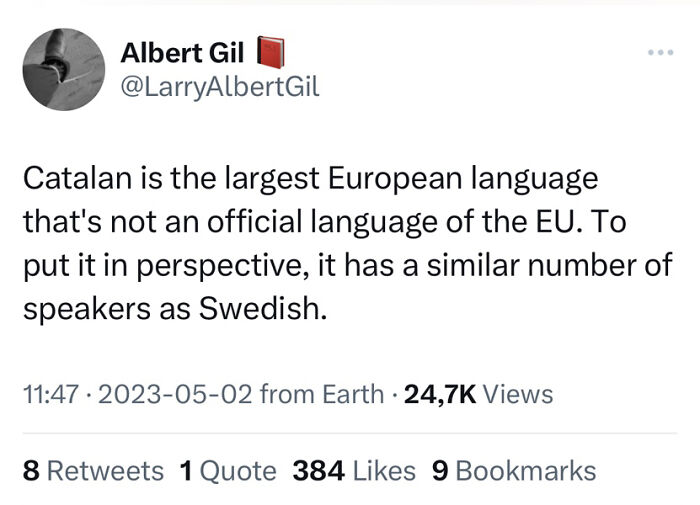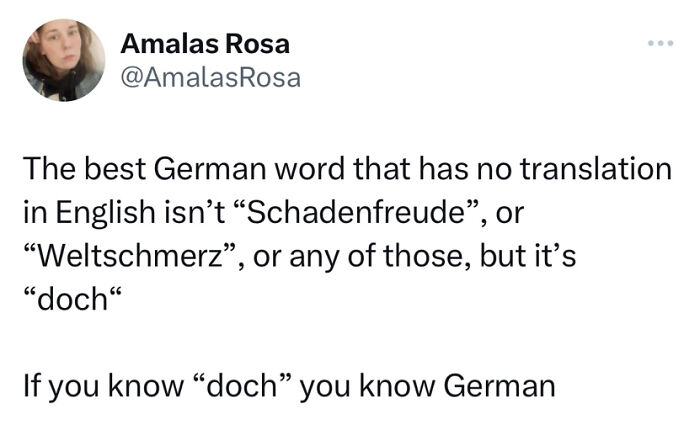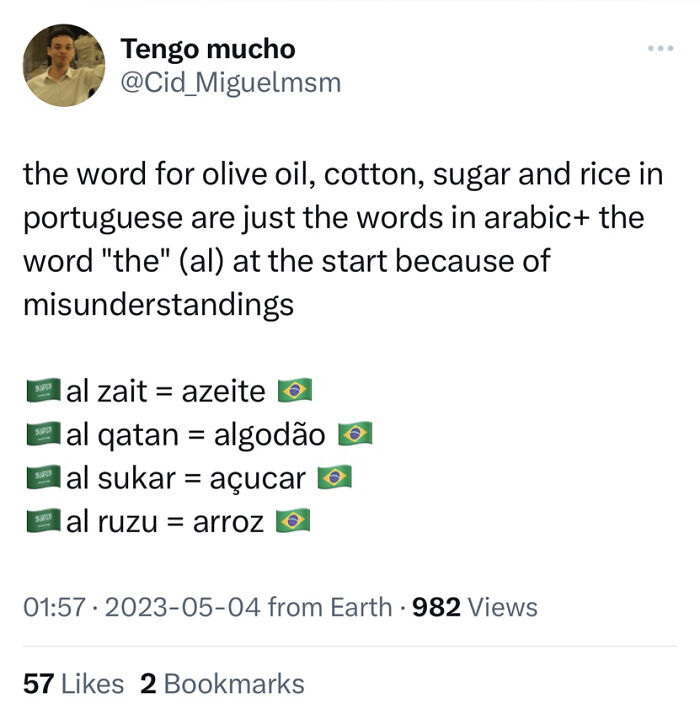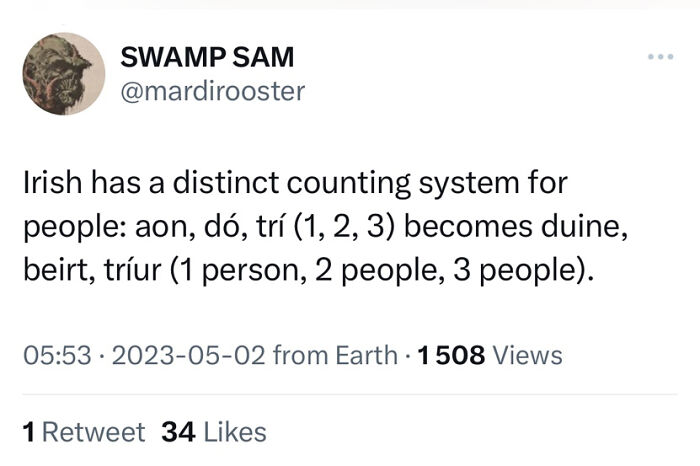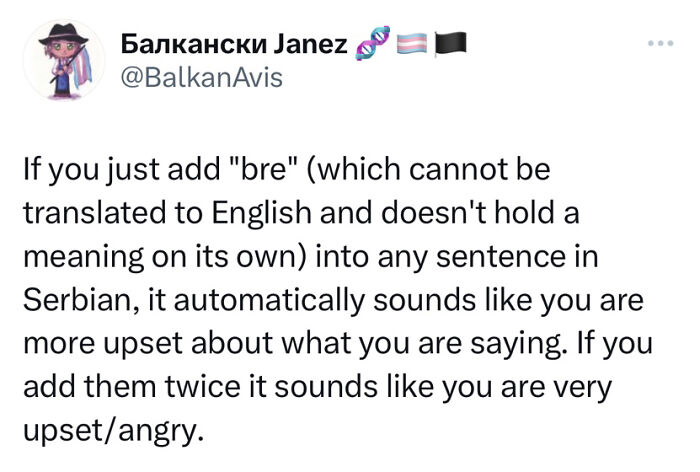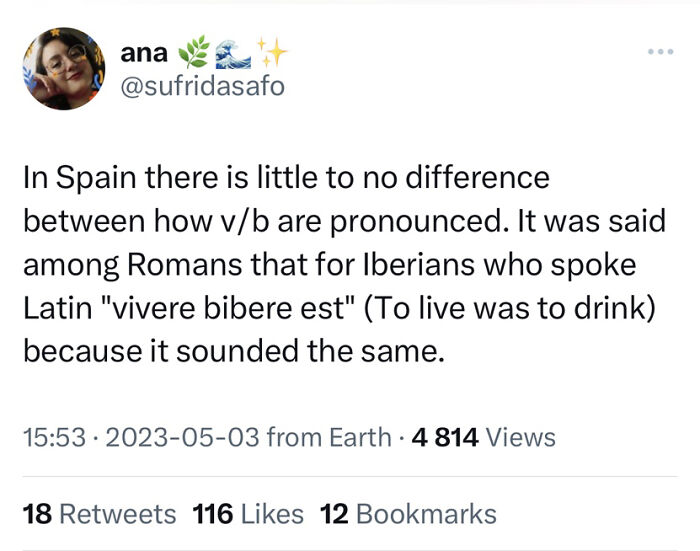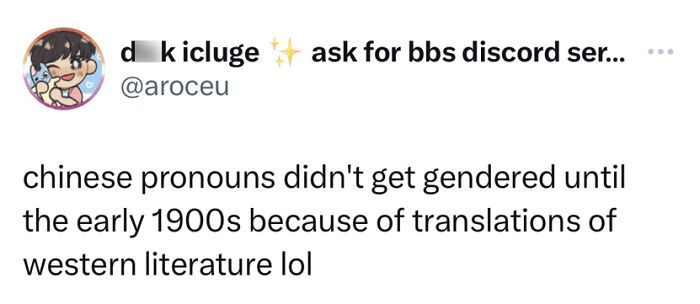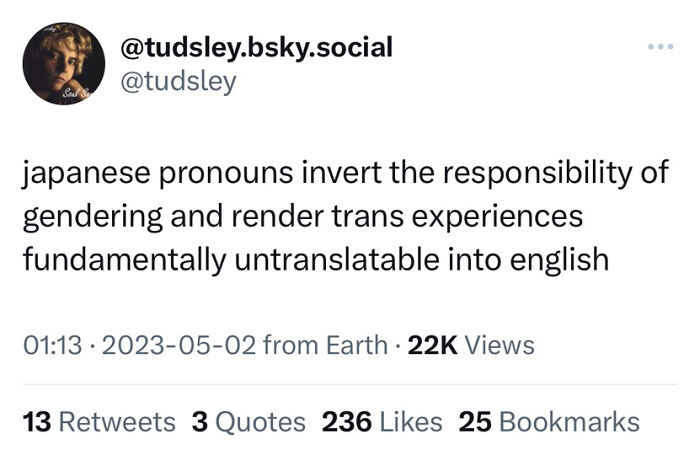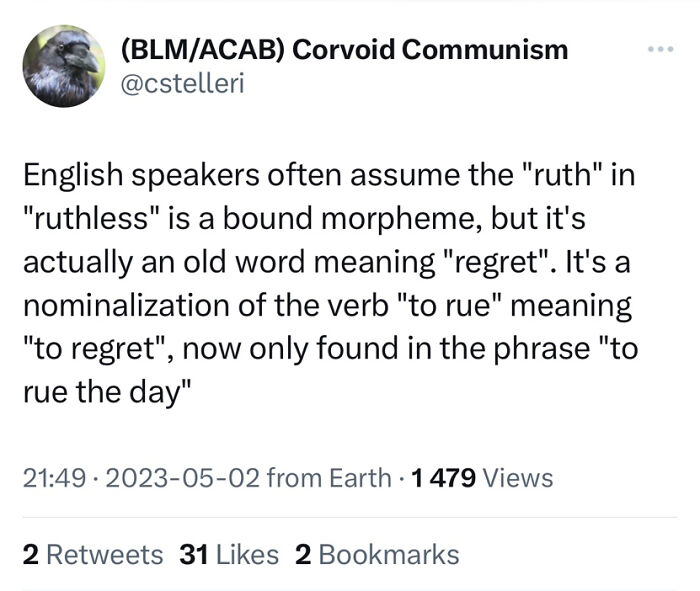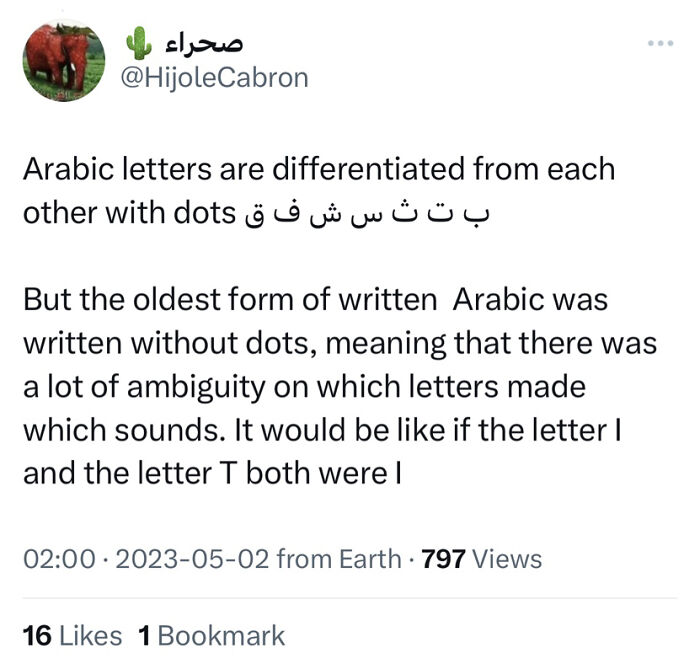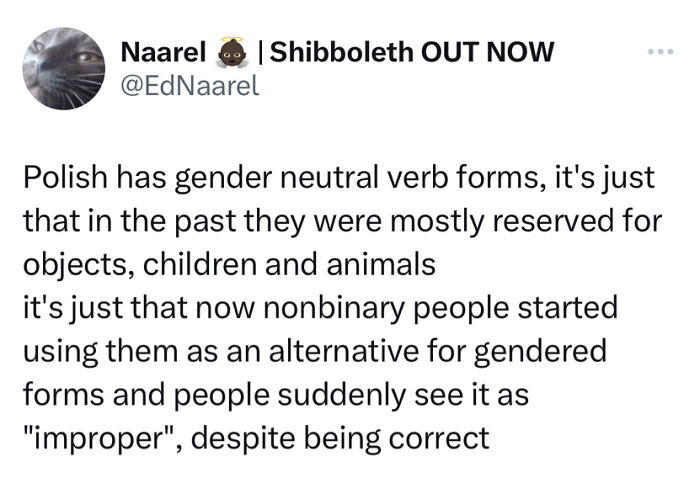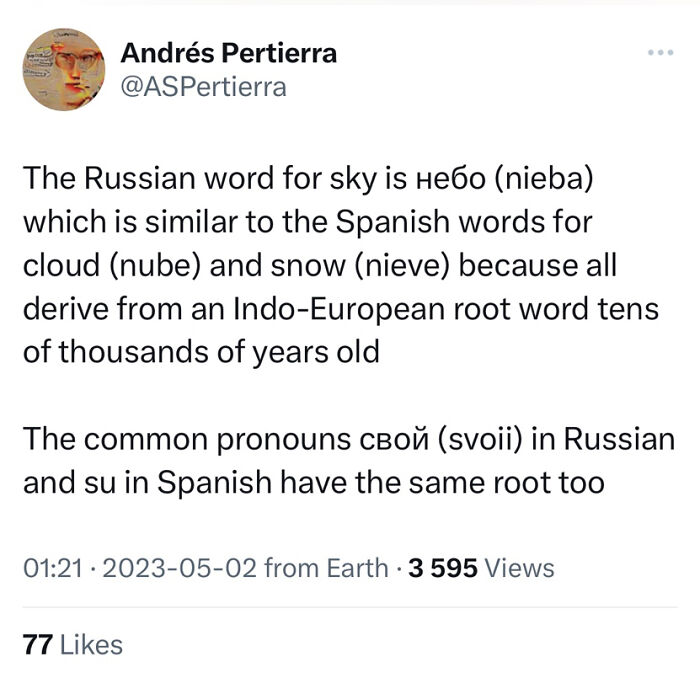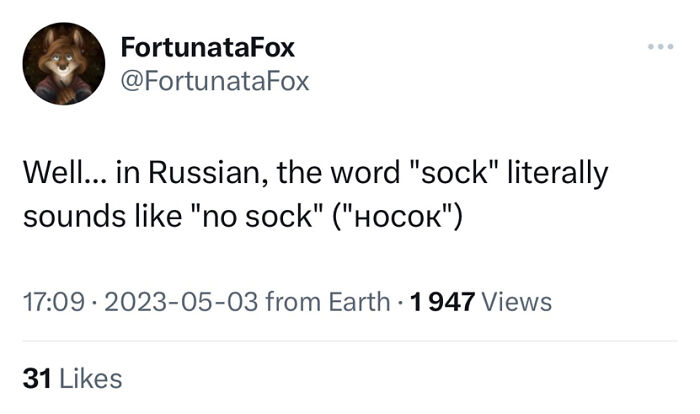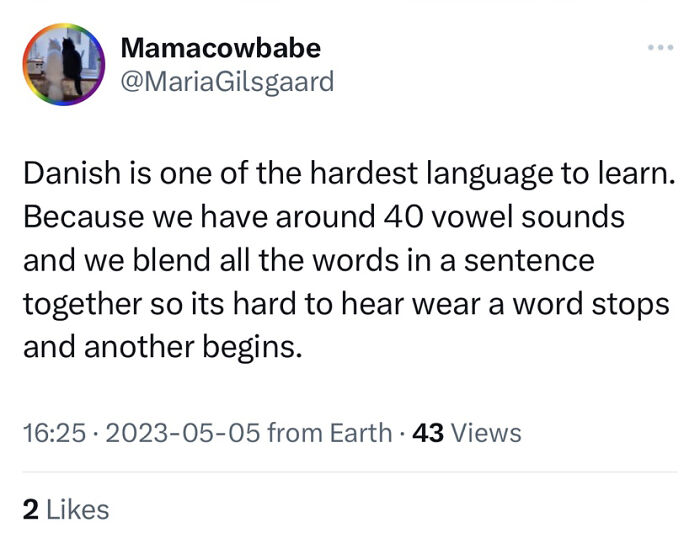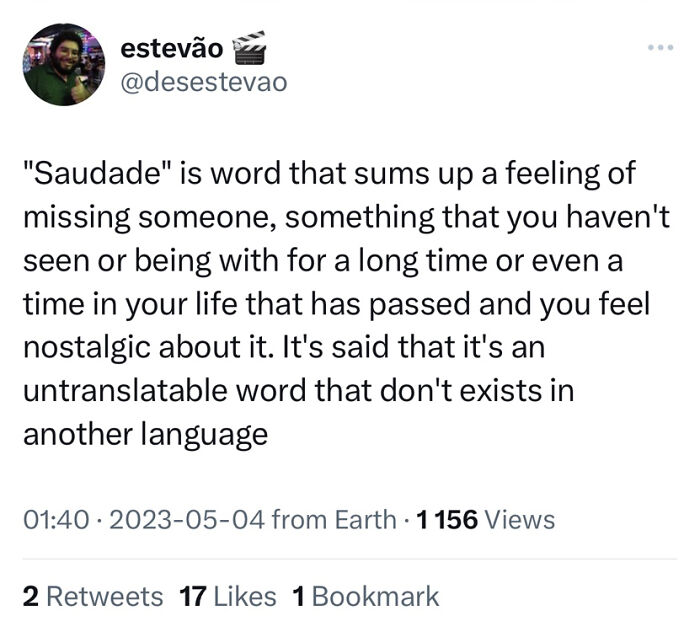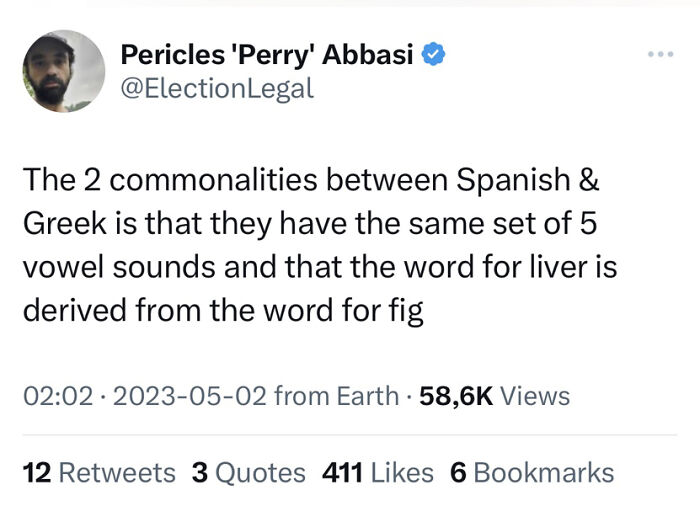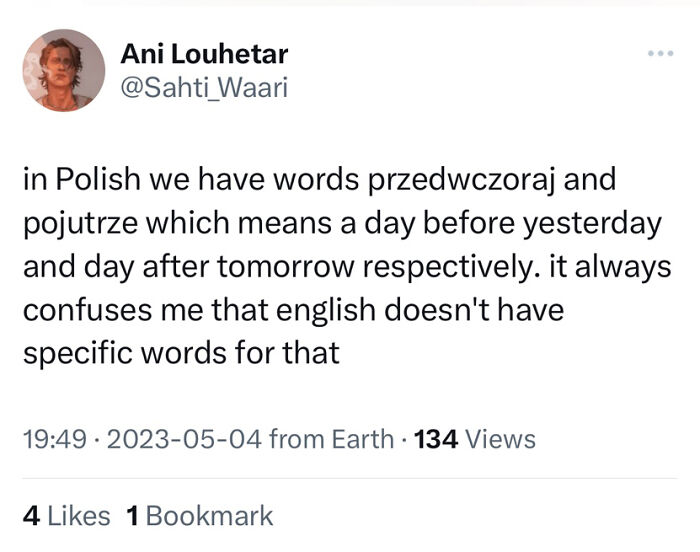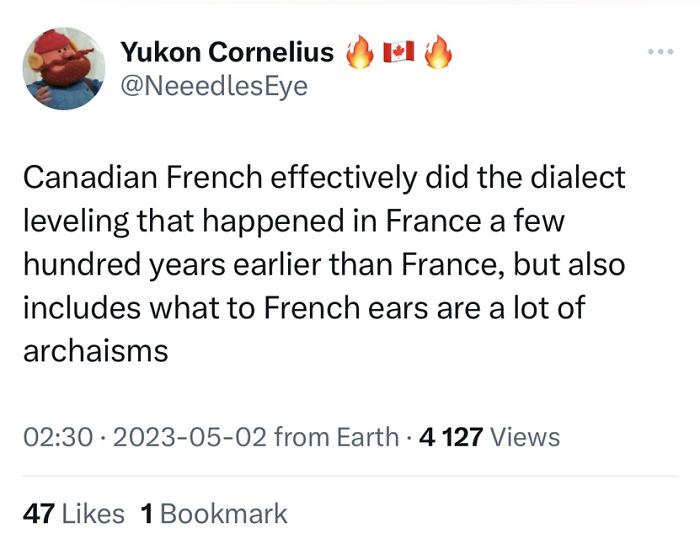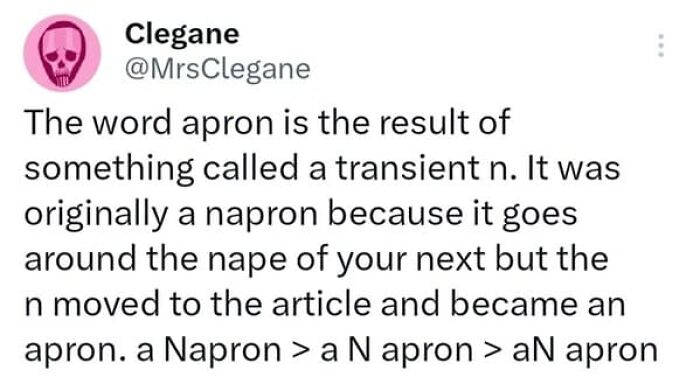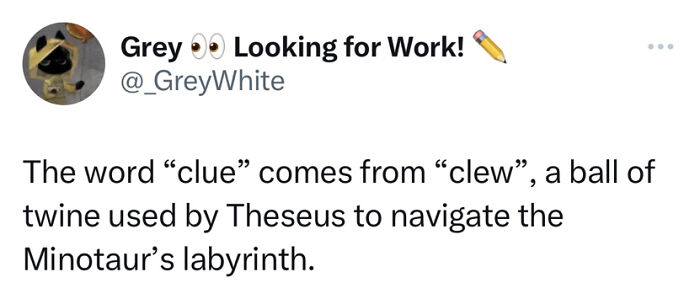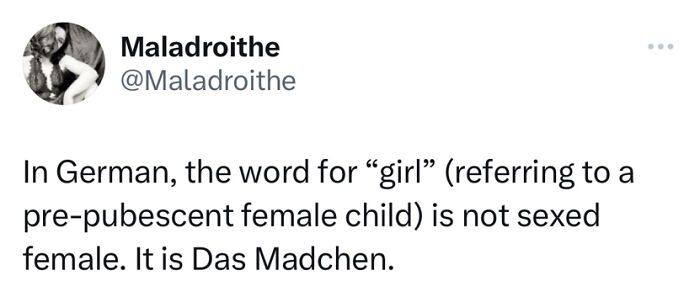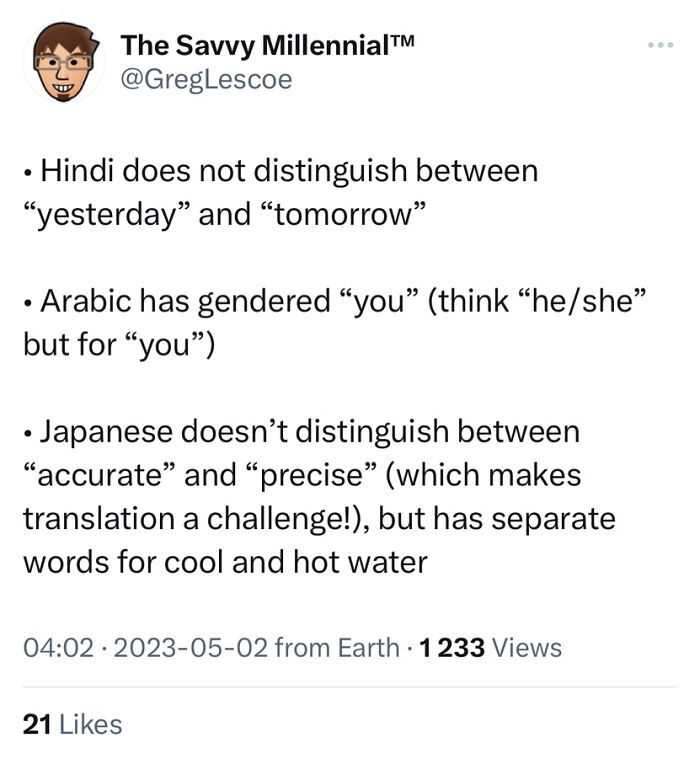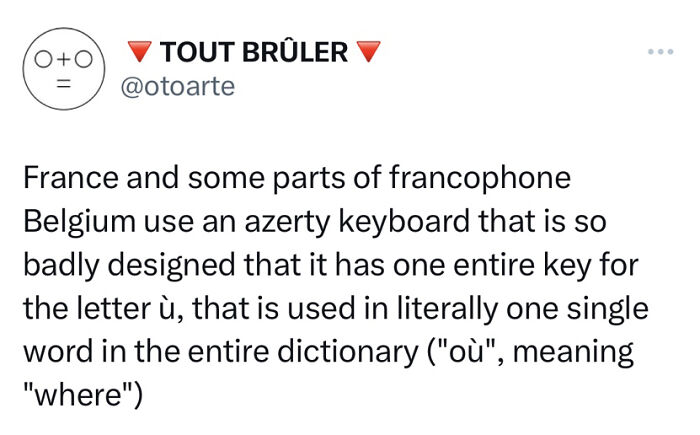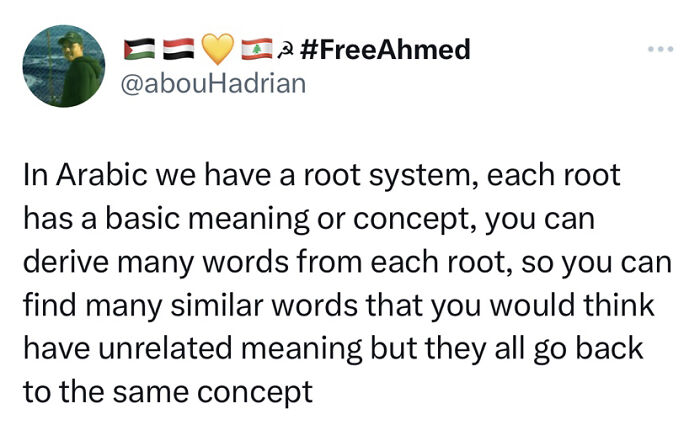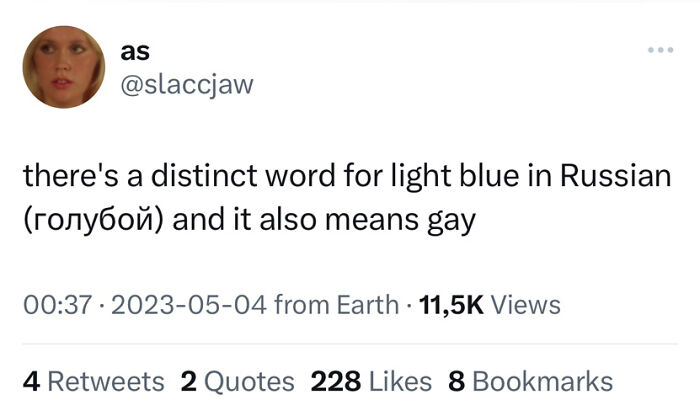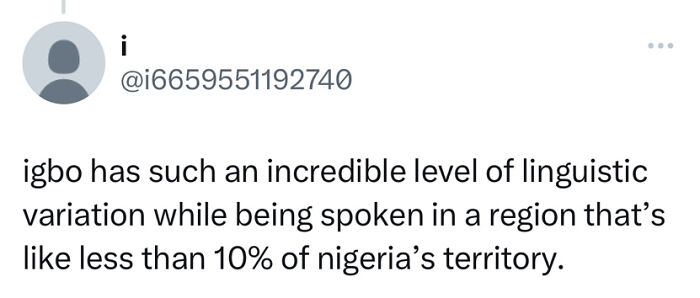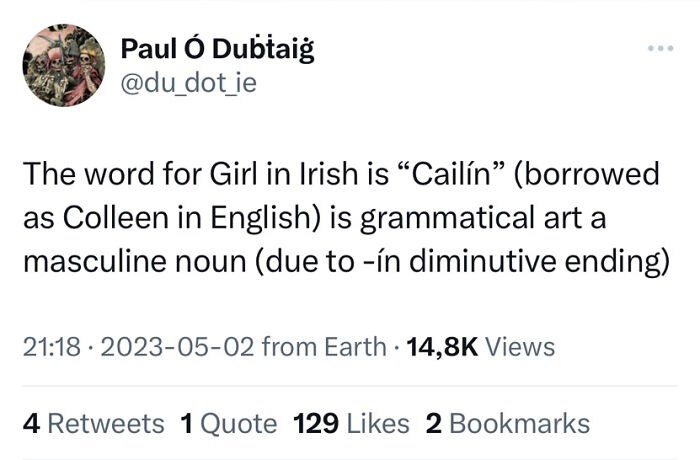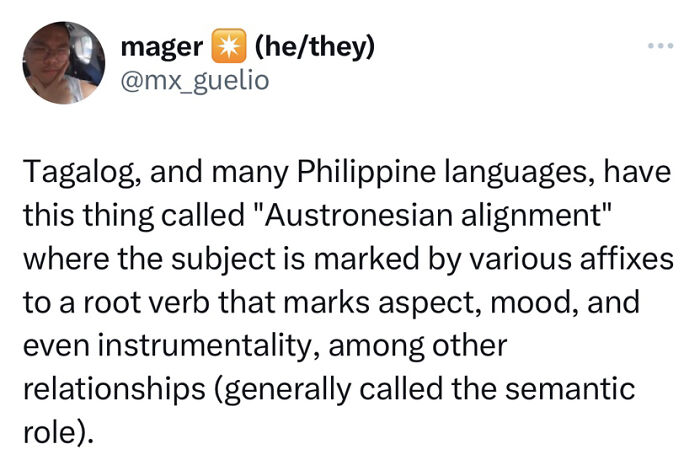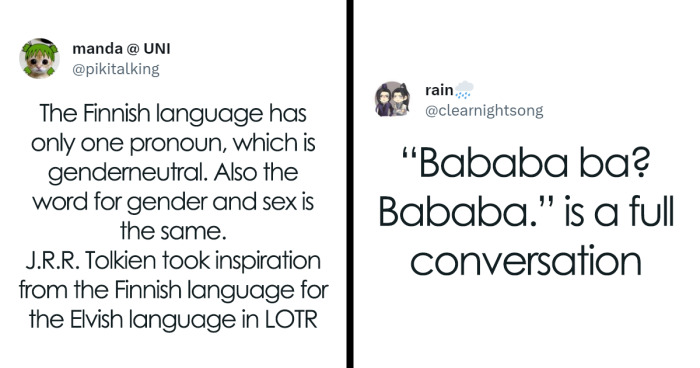
“It Will Irritate You Very Slightly For The Rest Of Your Life”: 30 Cool Language Facts
Learning a new language might be a massive challenge, but it’s an enjoyable one at that. It’s a wonderful workout for your brain. You end up making a ton of new friends. And you end up expanding your perspective by learning loads about new cultures. Many languages have a lot of subtle similarities, differences, and nuances that beginners aren’t (yet) aware of.
Luckily, the internet’s full of linguists—professional and amateur alike—who are happy to lift the veil and give a peek into the inner workings. Twitter user Liam, @LegoRacers2, started an interesting discussion after asking people to share interesting facts about the languages they speak. And, wow, did they deliver. Check out the coolest linguistic facts below! It might be the inspiration you need to start learning something new.

Image credits: LegoRacers2
This post may include affiliate links.
Similar to single and double n in Italian. If you don't pronounce it correctly, the aria 'una Donna a quindici anni' takes on a very different tone.
Bored Panda got in touch with Lisa McLendon, the William Allen White Professor of Journalism and Mass Communications and the Bremner Editing Center Coordinator at the University of Kansas. She speaks Russian and has also studied Czech, Bulgarian, Serbian, and Old Church Slavonic, plus the history of Slavic languages, as part of her Ph.D. coursework at the University of Texas in Austin. McLendon told us about what makes Slavic languages distinct from others in Europe, and what challenges they post to new students.
She explained to us that Slavic languages are a different language family. "Most people, when they think of European languages, think of Romance languages (French, Spanish, Italian, etc.) or Germanic languages (German, Dutch, and Scandinavian languages). But there are other language families in Europe, such as Baltic and Slavic, and a few languages that don’t really fit in at all—Basque and Hungarian, for example," she said.
Are there actual rules for this? Or is it just the instinctive way we speak the language?
"Then there’s the alphabet: Some Slavic languages, such as Russian, Ukrainian, and Bulgarian, use the Cyrillic alphabet, while others, such as Polish, Czech, and Croatian, use the Latin alphabet, with a few extra letters/diacritics to represent sounds that aren’t in, or aren’t represented by one single letter in, the Latin alphabet. And in terms of grammar, most grammatical features in Slavic aren’t completely foreign to Europe, though, as one example, the way the verb systems split tense and aspect is a bit different from the other European language families."
Bored Panda was curious about what challenges someone with a Slavic background might run into when learning English, as well as what would cause trouble for English speakers learning Slavic languages.
"Slavic doesn’t have articles (a, an, the) and that’s always a tricky part of English for learners whose native language lacks articles," Professor McLendon shared
"Verbs are trouble going both ways: English blends tense and aspect and uses a complicated system of auxiliary verbs. But Russian, for example, cleanly separates aspect from tense and then adds an extra layer of complexity with verbs of motion (going, coming, bringing, riding, etc.)."
The professor continued: "Pronunciation in Slavic languages tends to be much closer to spelled-like-it-sounds than in English (isn’t everything?), but Slavic languages have some sounds, such as certain palatalized consonants and the Czech ř, that are hard for native English speakers to master. Going the other way, Slavic languages lack both voiced and voiceless th (as in thin and thine), so those sounds are a bit harder to master for English learners."
The Russian language treats light blue and dark blue as seperate colours.
Twitter user @LegoRacers2’s thread was a massive success. His post was viewed a jaw-dropping 9 million times. However, the real victory was proving that social media can be brimming with people who are happy to share their wisdom. All it takes is the right question to draw them out.
Liam, the author of the viral thread, has been a Twitter user since early 2013, and jokingly describes himself as a ‘Florida Swamp Ape.’
The reasons why people learn new languages can be as numerous as their motivations. For instance, yours truly loves French because it simply sounds awesome. But the reasons tend to fall into a few broad categories. For instance, someone might start delving into the basics of a new language because they’re moving abroad for work or an exchange program. Or they might have some new people from abroad in their social circle who they’d like to connect with on a deeper level.
A Tagalog language joke.
- Bababa ba? (Is the elevator heading downwards?)
- Bababa. (Yes, it is.)
This implies that people don't already know this, and that they don't know the reason. I was taught this when I was around 8 or 9. The old Roman calendar started in March, therefor making September the seventh month. When the start of the year was switched to January, it bumped September along to 9th place.
Others might choose to learn a new language because they’re bored out of their minds, crave a new hobby, or want to dust off some of the cobwebs growing in their brains. Learning anything new is challenging at first, but once you get to grips with the basics, it can be incredibly rewarding. Especially if there are some larger factors at play. Like preparing for a fun trip to Japan. Or wanting to travel across South America without an interpreter. You can forge a lot of friendships if you show the locals that you respect them enough to at least try to speak to them in their tongue.
Well, Estonian is pretty close to Finnish, definitely closer than hungarian..
I don't know anything about estonian language or grammar, but I think, the OP was referring to grammar-rules in these languages. What is a fact. I'm hungarian, in no way I would understand a person speaking finnish, and it's true the other way round. But our grammar rules are sharing a lot, meaning, that for me, would be easier to learn finnish, than english was.
Load More Replies...Finnish has _multiple_ linguistic neighbors nearby. There's Estonian, Karelian, Livvi, Ludic, Sami, etc. Hungarian is actually one of the more distantly related langauges to Finnish within the Uralic language family. Finnish is on the Finno-Permic branch while Hungarian is on the Ugric branch. That's like saying Italian doesn't have linguistic neighbors nearby (ignoring French, Sicilan, Corsican, Spanish) and that English is the closest. The thing about gender neutral pronouns is true for the entire language family, but it's not just the pronoun, Uralic languages lack grammatical gender altogether.
This sort of bugs me because the word "pronouns" doesn't only mean stuff like she/he/they, it also refers to stuff like I, me, you, so I really doubt that Finnish only has one pronoun. However I understand that OP is talking about a term of address
Yep, there are other pronouns. We just don't have any words with genders.
Load More Replies...Spoken language "se" (=it) is perfectly fine for a pronoun
Load More Replies...As a nonbinary person, SEND ME TO FINLAND SO PPL WILL USE THE RIGHT PRONOUNS
What was the point of gendered pronouns in the first place.
Load More Replies...Neighbouring Estonia though...? Estonian shares a lot with Finnish. (example: counting to five in Finnish: yksi, kaksi, kolme, neljä, viisi , and counting to five in Estonian: üks, kaks, kolm, neli, viis ) but yet.. a lot is different. For example "Hallitus" means government in Finnish but in Estonian... mold. The languages share the same roots and are the same language family, though.
hungarian is exactly the same, except Tolkien did not used it as an inspiration
*not the American conservatives wanting less pronouns while the others are fighting for hundreds of them*
Load More Replies...As a Hungarian, I can agree. The first statement is 100% how it is in our language too.
Estonian, Sámi, Ingrian, Karelian, Veps, Meänkieli...
According to Tolkien himself, he actually based Quenya 'on three of my favourite languages: Finnish, Greek and Latin'.
And Hungarian is close to Turkish, because of the Ottoman occupation, which lasted over a century. Interesting.
I had a look at Tamil (a Southern Indian language) once. The Tamil language distinguishes between masculine and feminine, but in a different way to European languages. It is not the nouns or pronouns which are marked for gender, but verbs. Thus, the word for "I dance" would be different, depending on whether the "I" is male or female. Tamil also has two words for "we", depending on whether the person spoken to is or is not included in the "we".
That last thing is so useful! My language doesn't have that, which creates confusion very regularly. "When we went to that store next to the park" 'When did we go there? I don't remember ever going there' "No, not you-and-I-we! Me-and-my-parents-we!"
Load More Replies...I once got a mars bar from my history teacher because I was the only one in class who knew that. Thank you, mr Clayton!
It isn't said for nothing that Finnish and Hungarian are almost "unlearnable" as foreign languages.
No, they aren't. They're just a couple of languages, soooo many people are learning them as we speak. I have a Canadian relative and her husband (with a Scottish background) talks Finnish, he learned it in the Helsinki University. I also have a friend who's married with a Hungarian and she learned the language. Then there's my British acquaintance who has learned Finnish.
Load More Replies...Rather than pick holes in the linguistic neighbours, I would like to acknowledge by luck or by design this has resolved half the ongoing twitter (x) arguments. Now we if we can get Trump behind bars that would resolve the other half. In the UK, Human Resources are trying their utmost to ensure everyone is gendered exactly how they want to be. However, the UK government only recognises two genders so it is all pointless.
Why is it pointless? Even if the government makes it unable to register that way, it will still be much less painful to for instance non-binary people if at least people at their job call them by their preferred pronouns.
Load More Replies...The he/she dichotomy oh English drives me up the wall. Need a gender neutral pronoun immediately.
We already have they/them/their, but it would still be nice to have a completely singular pronoun.
Load More Replies...Much time and lucubration have been wasted on the creation of entirely artificial genderless pronouns for use in English, and about t same amount of waste has been produced by encouraging the ungrammatical use of 'they' and 'them,' Yes it. It's perfect. All you have to do to distinguish between a person and a thing is capitalize it and bob's your uncle.
'Singular they' (they for 1 person instead of multiple people) has been used in English since the 14th century. You use 'singular they' when you don't know someone's gender or when someone's gender doesn't matter to your story: "Someone bumped into me on the street and they didn't even say sorry" || 'There was someone at the door' "Oh, what did they want?" || 'Who was calling you on the phone?' "I don't know, they already hung up" Many of us have been using singular they instinctively, without even realizing it. And since it already exists, why not use this one also for people who don't completely fit into the male or female category?
Load More Replies...Meanwhile, some people might decide that they want to reconnect with their cultural heritage. Say, if their relatives migrated from elsewhere decades or even centuries ago. On the other hand, some folks take up their studies not primarily out of the desire to talk to others but to understand their literature and media. There’s a lot that can be lost in translation, after all.
Same with Icelandic - I think. (I'm not a native speaker of Icelandic.) This is what I remember reading in a guide book. The language is so old that they don't have words for modern inventions such as "atomic bomb", for instance. Looking for a name for it, Icelandic linguists dug through old scriptures and came up with a word that translates into "flaming spear falling to the earth" - or something like that.
English, while a wonderful language that is incredibly useful to know, won’t open every door for you. And you cannot expect everyone to speak it. The more languages you’re well-versed in, the more opportunities you’ll be able to take advantage of in life. Having that kind of flexibility is incredibly useful in one’s social life, on the internet, professionally, and at school. Being a human being is all about connecting with others because we’re social creatures. So it makes sense to develop as many social tools as possible to do so.
It was created to address illiteracy within the country. The elites who could afford schooling were learning Han Chi, which the written form of traditional Chinese characters. It is commonly known that Chinese characters are difficult to master especially since it does not translate well to spoken Korean. Hangul is an alphabetical writing system that better captures the spoken language in written form.
Sign language is many centuries old as well. The earliest concrete reference to sign language in Britain is from the wedding of a deaf man named Thomas Tillseye in 1575.
It’s important that you’re passionate about the language and culture. Otherwise, if you feel like someone’s forcing you to learn against your will, you might run out of motivation. However, some individuals pick these languages based mainly on how widespread they are, and how impactful they’re likely to be in the future.
For fúck's sake BP, ANÙS is a medical term. STOP THIS STUPID CENSORISM!
For instance, Babbel points out that there are 1.3 billion Chinese native speakers on Earth. Meanwhile, around 485 million people speak Spanish as their first language. That’s far more than the (still impressive) 373 million native English speakers there are worldwide. The fourth most spoken language is Arabic (362 million native speakers), and in fifth place is Hindi (344 million speakers).
Going to go going still makes more sense than going to GET going to me. :p
Kind of the same for southern Germany and Austria, "servus" (used for both "hello" and "goodbye") derived from the Latin word for "slave"
We have regional variants on counting in English dialects. Where I come from, they were mainly used for counting sheep, and it goes Yan, Tahn, Teddera (1,2,3). There are a huge number of variants, and it changed almost from valley to valley. See https://en.wikipedia.org/wiki/Yan_tan_tethera
However, Berlitz notes that the total number of English speakers, including native ones, is over 1.4 billion, making it the most popular language worldwide. In the meantime, there are over 602 million people who speak Hindi and 548 million who speak Spanish, whether as their native tongue or a second language.
Adding "you utter" before any common noun does turn any word in an insult.
Actually, the 'est' part of that is the present tense form of the verb to be, so it should be translated as 'is'. The past tense form is 'erat'. Edit, imperfect past tense.
Learning a new language, like developing a new habit or skill, can be incredibly time and energy intensive. What matters the most, above everything else, is consistency. If you have the patience to focus on your studies every single day, you’ll see far more progress than if you do it only when you feel like it. Language learning apps like Duolingo reward their users for staying consistent.
他(he) 她(she) 它(it) are pronounced exactly the same, 'ta'. It's quite funny because the 'it' form isn't well taught to foreign speakers, so you end up with people writing: I bought a table. He was hard and beautiful.
The more immersed you are in the language and culture, the better your results will be. It really helps if you have the courage to talk to native speakers even if your skills are still underdeveloped. In the meantime, try to consume as much media and literature in the language as you can. Your growth should skyrocket! Though remember to take proper breaks: your mind needs rest for all of that new knowledge to settle down.
Nobody told me this and I spent six months in Brazil saying thank you like a man.
One of my favourite Swahili words is Kali -a Kali dog (fierce), a kali knife (sharp), a kali curry (hot), a Kali teacher (strict). I may be wrong of course, because my knowledge of Swahili is limited to what we called 'kitchen Swahili' -so very far from fluent.
Similar idea to American Midwestern English: "Yeah, no" vs. "yeah, no, yeah" and more!
I've heard it's one of the hardest languages to lip read, I can lip read pretty fluently and in a deaf group I'm in that's global, we were discussing how easy/ hard it is to lip read in your native language and Danish was by far the one people said was hardest.
Portuguese word.
In the same way that the word nostalgia = a sentimental longing or wistful affection for a period or person in the past (different dictionaries will vary). Maybe it's not the best of explanations (and I've just woken up!) so can someone explain the difference a bit more clearly?
I need the reason because that is both ridiculously funny and really interesting at the same time. (The fig part, but vowels are still fun)
Luxembourguish drives me Crazy, as a German speaker it sounds almost but not quite entirely unlike German then it switches to French.
I would disagree with the tense part, as there are speech particles that dictate tense, such as '了' (le) for the past tense, and '会' (hui) meaning will. The pronoun/gender stuff is true because 1: we don't gender out nouns and 2: he, she and it are pronounced the same.
German does :D It's morgen (tomorrow), übermorgen (the day after tomorrow), or even überübermorgen (the day after the day after tomorrow XD). Same goes for gestern (yesterday), vorgestern (the day before yesterday) and vorvorgestern (the day before the day before yesterday)
Growing up in Canada, I can only somewhat understand France French, but Quebecois/Acadian French I understand perfectly. The accents and even vocabulary are just so different.
The etymology is a little wrong here. 'Napron' comes from Latin 'nappa' (napkin) via Old French 'naperon' (small table-cloth). But it is correct 'a napron' morphed into 'an apron'. The same thing happened with 'a naddar', (a snake/serpent) becoming 'an adder'. One that made the opposite journey was 'an ewt'. It became 'a newt'.
I read that it's adapted from French. It means "nail", figuratively speaking it talks about a linchpin.
The same is true in Dutch (het meisje, although 'de' isn't actually gendered), I'm guessing it's because of the diminutive -chen. (As that is the case in Dutch.)
Same in Russian, by the way. I was really confused when English speaking people said that our language sounds rude, because I see all the caress forms for the words that don't have them in English. Our cats have "lapky" (a caress form of lapy, paws), while yours - only "little paws". Our little goats have "Rozhky" (a caress form of "roga", horns), while yours have only little horns, etc. There are caress forms for adjectives, too. You say "bluish" meaning "Blue, but not full-on blue", we say "Seenenkiy" meaning "blue, but also cute". You say daughter, and that's it. We say Doch (daughter), Dochka (a slightly more affectionate), Dochenka (very affectionate, used only for our relatives, we can't say that Mary is Boris's dochenka, it would sound weird).
More interesting about Arabic is that each consonant is either 'solar' or 'lunar' which describes whether it is rolled into the definite article or not. The split is about half and half. The word for the sun is not pronounced 'al-shems' but 'ash-shems' despite that is still spelled الشمس. The word for 'the moon' -- 'al-qamr' is spoken as it is written. Basically, soft consonants are 'solar', hard consonants are 'lunar' and the pronunciations are so instinctive to native speakers that they don't rely on the idea anyway.
Yes, you have to emphasize the first or second syllable to change the meaning
Many languages do that. It's because the word for light blue used to be used to describe animal fur. Like people still cal cats and dogs of a certain colour "blue". the words for darker "blue" came very late to languages as the pigment is hard to obtain in nature- like in english people also use indigo or navy to describe blue colours.
it appears in afrikaans as koop and english as cheap and german as kaufen
This is a litlle disoriented. Though "ananas" is the word for "pineapple" in many languages, in South America, which is mostly Spanish-speaking, the word is "piña."
In Italy during the fascist regime the use of foreign words was banned, so the government had to come up with alternative words. For example, "cocktail" became "bevanda arlecchina" (arlequin drink), "sandwich" became "tramezzino", "garage" rimessa, "gangster" malfattore, and so on. Even names of people and cities were "italianized": Buenos Aires became "Buonaria", Churchill was written as "Ciorcil" and my favorite: Louis Armstrong became "Luigi Braccioforte" (the literal translation of his surname). Another example of how stupid regimes can be.
Ciorcil and Louis Braccioforte gave me a good laugh, thank you!
Load More Replies...In Finnish there is multiple words inspired by Swedish words. My most favorite one is our word for "jealous". In Sweden it is called "svartsjuka", witch translates roughly into "feeling of black sickness inside" But because our ancestors thought the word "sjuka" - "sick" sounded like the Finnish word "sukka" - "sock" . So our term for jealousy is "mustasukkainen", wich translates to "having black socks on" :D
An ex GF mine is Hungarian and she taught me a ton of Hungarian words and phrases.One of the ones I still remember is the word for garlic: fokhagyma (phonetically as pho-g-had-yi-ma). In English, the literal translation is tooth onion. At one point, I had a vocabulary of about 100 words so one year at Christmas we did a demonstration of my skills for her parents. She pointed to various things, body parts, etc. and I spoke them in Hungarian (Magyar). The words that got the biggest enjoyment all the way around were for apple (or apple pie) and nipple: almacsutka and mellbimbó...surely the laughs were due to my accent, but those were a big hit for whatever reason. Good times. :-)
A Swedish friend once told me there is a word in Swedish that means “to make a mark with your penis” wish I could remember it as she is no longer around to ask and everytime I’ve asked other Swedish speakers they’ve looked at me like I’m crazy, she of course could have been joking as she was a great prankster. (Miss you Kim x)
Ha! We do indeed have a word for that, it's "olla"! Back in the day a popular comedy group made a sketch about it that was very well known.
Load More Replies...A quote that I have loved since I first set eyes upon it. "The problem with defending the purity of the English language is that English is about as pure as a cribhouse whore. We don’t just borrow words; on occasion, English has pursued other languages down alleyways to beat them unconscious and rifle their pockets for new vocabulary." --James D. Nicoll And we still think some of the examples here are peculiar?
Bearing in mind how many times England has been invaded, though maybe not known by James D Nicoll, it's a tad simplistic. By the Romans, by Germanic peoples, by Vikings, by the Normans, by the French, and by the Dutch. Old English, the earliest form of the English language, was spoken and written in Anglo-Saxon Britain from c 450 CE until c 1150 - it continued to be used for some decades after the Norman Conquest of 1066. By the time the Anglo-Saxons arrived in Britain, there had already been four centuries of linguistic interchange between Germanic and Roman people on the European mainland. Latin words might have arrived in English through any of several possible routes. To begin with, they must have entered the Celtic speech of the Britons during the Roman occupation. There are also still 14 different indigenous languages used across the UK.
Load More Replies...In dutch you can create the diminutive of pretty much any noun by adding "je" to the end. So if it's a version of a thing that's small or cute, like a duckling, you take the word for duck "eend" and add "je" to the end and you have a little duck; "eendje"! You can have a little dog, you can have a little building, you can have a little idea, you can have a little tank, just by adding "je" to the end. It works with *any noun*.
Lol in Afrikaans too – you just add "kie" or "tjie" to anything and it's little
Load More Replies...American English: rough, dough, bough, and cough. None of these words rhyme.
Plants and animals tend to have very descriptive names in Swedish, for example: racoon=wash bear, bat=flutter mouse, hippo=river horse, squid=ink fish, turtle=shield toad... And garlic is white onion, and chives=grass onion. To name just a few examples.
All this goes for Dutch and German as well. (Only the garlic thing is different, we use 'look' or 'lauch', similar to leek, and we describe the form. K**b (knof) for garlic and 'schnitt' or 'bies', meaning stalk for chives.)
Load More Replies...Maharashtrian here. We speak Marathi. We share the same alphabets with Hindi and few other related language. In fact you wont be able to distinguish between written Marathi and Hindi till you start reading. We have a few alphabets that others dont. So words can be pronounced differently. the surname Tilak is pronouced in Marathi and hindi. टिळक is in Marathi and Hindi will say तिलक
In Czech we have special characters with little hooks, like š, č (read as sz or sh and cz), ě, ž (ě has no equivalent in English at all, but ž is read a bit like "j" in French "je"). And then there are characters with small lines, ó, í, á, é which are read the same, but long, so "í" is usually read as English "ee" (like in leek). And then we have "ř" and "ť", which are special letters, because nobody who wasn't raised there can pronounce them correctly. Adults who moved here still cannot pronounce those clearly after 10 years of using Czech daily, it is still hearable.
I like the polish letter L with the strike through it. Something like a W.
Load More Replies...A large number of words that are thought to be Australian Aboriginal are actually European in origin. You may already know that 'echidna' is a Greek god and 'platypus' is Latin for flat-mouth. The word "emu" was invented in London. The word "corroboree" is English, from "corroborate" with an ending from "jamboree"; the first corroboree was a meeting between the government and the tribal leaders to discuss the issue of black violence. "kookaburra" is a word essentially made up by an advertising agency, they wanted to sell the birds as pets but shied away from its real name of laughing-jackass. "piccininni" is Portuguese, a version of the Portuguese word "pequenino". The Aboriginal word "gin" from Sydney originally meant a white woman and probably came from "Jen/Jenny".
My favorite Spanish oddity: ¿Por qué? = Why? Porque = Because
You are never hungry or thirsty in French. Instead you 'have hunger', or you 'have thirst'.
In Thai, con means person. So, con Thai, Thai person. When they say Lao or Kampucha, they do not say con beforehand as they think Lao and Cambodian people do not qualify as human.
In Chinese we din’t just say little sister or big brother we have entirely different words for them like little sister will be 妹妹(I think) and big sister will be 姐姐 we also have different words for (I think) grandma mother’s side and grandma fathers side
Many common words in English are loan words from Tamil - curry, cash, ginger, mango, pariah to name a few
Relatively few instances can be considered direct borrowings from Tamil, as most of the borrowed forms have entered English through European languages, such as Portuguese or Dutch (the Portuguese and Dutch were among the first Europeans to have traded with South India), Arabic, Persian or Hindi-Urdu.
Load More Replies...Aaaaand since I can't shut up - One more. I'm from the Northeast of England. Gadgy = Man/bloke. Radgy = angry person (radgy gadgy). "Ahm gan yem" = I'm going home. Howay = Come on. Aye = Yes. Dinnut/divn't = Don't. Worky ticket = irritating person. Wasseye/Geet wasseye = big/really big (getting rarer that one). Cad = Cold. Ket = Sweets/candy. Keks = Underpants.
In Chinese, there is a very that basically means "I thought incorrectly." 我以为你不喜欢他 means "I thought you don't like him" with the implication that you DO like him and I was wrong.
Just for fun: a few years ago I wanted to buy a table, so I went to the store in Germany. On the table they had a placard about their deal on chairs... In German, chair is Stuhl, and in Czech, Stůl is table. So I see that placard, on the table, and think, what a good deal, it is a nice table, and i arrange to buy it. I go through the whole process of picking the color, the legs, etc (it takes a while, i am indecisive) and at the end I am told a price far higher then I was expecting, but I am embarrassed and don't want to argue in a language I don't know too well, so I acquiesce... I think I realized as I was leaving, or perhaps as I was preparing to complain to a friend later: aha, they were selling chairs, not the table, with that sign! 🙃😅
In Spanish, to attend is 'asistir,' while to assist is 'atender' (to tend to). That being said, 'asistir' can also mean 'to assist' depending on the context.
Hebrew is largely just mispronounced Arabic. For example. Arabic 'ibn' is written in consonants as 'bn' and mispronounced 'ben'. Arabic 'Suleiman' is written in consonants as 'Slmn' and mispronounced 'Solomon'. Arabic 'Allah' is written in consonants as 'l' and mispronounced 'El'.
or Arabic is mispronounced Hebrew, considering Hebrew came first. IF you go by the bible :P
Load More Replies...The pronoun Sie/sie in German can mean she, her, they, them, and you (formal), depending on capitalization, sentence placement, case, and context.
„No ni mă la el ce be” is a complete sentence in Romanian wich translates to "Look at him how he drinks". It contains 7 words of only one syllable each.
In croatian, every word has a gender. Like German sand other languages. Normaly, one learns gender with time. But its is nevere the same in diffrrent languages. So learning let sad Latin or German, means one has to unlearn genders im your own language and learn them in new one. And then again for the thirhd language. I forgotten genders in German and Latin that I learned im School and am to lazy to Google. But let's take the Word for chair . English, its ”it" Like inanimate object all ste. But im Croatian is feminine, "stolica ". I am sure other languages have diffrrent genders for it.
Can I add one for my American friends? (I'm English) - "Tw@t" rhymes with hat, not swat. It can be a low level insult, as in "You're a tw@t" or it can mean to hit (at least in my area) as in "Oh no! A spider! Quick, tw@t it with a newspaper!" or for some of my local dialect - "I'm going to tw@t you one in a minute!"
The word, "KREE!" has many different uses. It can mean, "look at this" when used in casual conversation, or "Attention" when yelled at a troop of Jaffa about to go into battle, along with a few other.
There is one word which is exactly the same in every spoken language on earth ... the word "huh?"
So Mr. Linguist, would you care to tell us what’s wrong then?
Load More Replies...In Italy during the fascist regime the use of foreign words was banned, so the government had to come up with alternative words. For example, "cocktail" became "bevanda arlecchina" (arlequin drink), "sandwich" became "tramezzino", "garage" rimessa, "gangster" malfattore, and so on. Even names of people and cities were "italianized": Buenos Aires became "Buonaria", Churchill was written as "Ciorcil" and my favorite: Louis Armstrong became "Luigi Braccioforte" (the literal translation of his surname). Another example of how stupid regimes can be.
Ciorcil and Louis Braccioforte gave me a good laugh, thank you!
Load More Replies...In Finnish there is multiple words inspired by Swedish words. My most favorite one is our word for "jealous". In Sweden it is called "svartsjuka", witch translates roughly into "feeling of black sickness inside" But because our ancestors thought the word "sjuka" - "sick" sounded like the Finnish word "sukka" - "sock" . So our term for jealousy is "mustasukkainen", wich translates to "having black socks on" :D
An ex GF mine is Hungarian and she taught me a ton of Hungarian words and phrases.One of the ones I still remember is the word for garlic: fokhagyma (phonetically as pho-g-had-yi-ma). In English, the literal translation is tooth onion. At one point, I had a vocabulary of about 100 words so one year at Christmas we did a demonstration of my skills for her parents. She pointed to various things, body parts, etc. and I spoke them in Hungarian (Magyar). The words that got the biggest enjoyment all the way around were for apple (or apple pie) and nipple: almacsutka and mellbimbó...surely the laughs were due to my accent, but those were a big hit for whatever reason. Good times. :-)
A Swedish friend once told me there is a word in Swedish that means “to make a mark with your penis” wish I could remember it as she is no longer around to ask and everytime I’ve asked other Swedish speakers they’ve looked at me like I’m crazy, she of course could have been joking as she was a great prankster. (Miss you Kim x)
Ha! We do indeed have a word for that, it's "olla"! Back in the day a popular comedy group made a sketch about it that was very well known.
Load More Replies...A quote that I have loved since I first set eyes upon it. "The problem with defending the purity of the English language is that English is about as pure as a cribhouse whore. We don’t just borrow words; on occasion, English has pursued other languages down alleyways to beat them unconscious and rifle their pockets for new vocabulary." --James D. Nicoll And we still think some of the examples here are peculiar?
Bearing in mind how many times England has been invaded, though maybe not known by James D Nicoll, it's a tad simplistic. By the Romans, by Germanic peoples, by Vikings, by the Normans, by the French, and by the Dutch. Old English, the earliest form of the English language, was spoken and written in Anglo-Saxon Britain from c 450 CE until c 1150 - it continued to be used for some decades after the Norman Conquest of 1066. By the time the Anglo-Saxons arrived in Britain, there had already been four centuries of linguistic interchange between Germanic and Roman people on the European mainland. Latin words might have arrived in English through any of several possible routes. To begin with, they must have entered the Celtic speech of the Britons during the Roman occupation. There are also still 14 different indigenous languages used across the UK.
Load More Replies...In dutch you can create the diminutive of pretty much any noun by adding "je" to the end. So if it's a version of a thing that's small or cute, like a duckling, you take the word for duck "eend" and add "je" to the end and you have a little duck; "eendje"! You can have a little dog, you can have a little building, you can have a little idea, you can have a little tank, just by adding "je" to the end. It works with *any noun*.
Lol in Afrikaans too – you just add "kie" or "tjie" to anything and it's little
Load More Replies...American English: rough, dough, bough, and cough. None of these words rhyme.
Plants and animals tend to have very descriptive names in Swedish, for example: racoon=wash bear, bat=flutter mouse, hippo=river horse, squid=ink fish, turtle=shield toad... And garlic is white onion, and chives=grass onion. To name just a few examples.
All this goes for Dutch and German as well. (Only the garlic thing is different, we use 'look' or 'lauch', similar to leek, and we describe the form. K**b (knof) for garlic and 'schnitt' or 'bies', meaning stalk for chives.)
Load More Replies...Maharashtrian here. We speak Marathi. We share the same alphabets with Hindi and few other related language. In fact you wont be able to distinguish between written Marathi and Hindi till you start reading. We have a few alphabets that others dont. So words can be pronounced differently. the surname Tilak is pronouced in Marathi and hindi. टिळक is in Marathi and Hindi will say तिलक
In Czech we have special characters with little hooks, like š, č (read as sz or sh and cz), ě, ž (ě has no equivalent in English at all, but ž is read a bit like "j" in French "je"). And then there are characters with small lines, ó, í, á, é which are read the same, but long, so "í" is usually read as English "ee" (like in leek). And then we have "ř" and "ť", which are special letters, because nobody who wasn't raised there can pronounce them correctly. Adults who moved here still cannot pronounce those clearly after 10 years of using Czech daily, it is still hearable.
I like the polish letter L with the strike through it. Something like a W.
Load More Replies...A large number of words that are thought to be Australian Aboriginal are actually European in origin. You may already know that 'echidna' is a Greek god and 'platypus' is Latin for flat-mouth. The word "emu" was invented in London. The word "corroboree" is English, from "corroborate" with an ending from "jamboree"; the first corroboree was a meeting between the government and the tribal leaders to discuss the issue of black violence. "kookaburra" is a word essentially made up by an advertising agency, they wanted to sell the birds as pets but shied away from its real name of laughing-jackass. "piccininni" is Portuguese, a version of the Portuguese word "pequenino". The Aboriginal word "gin" from Sydney originally meant a white woman and probably came from "Jen/Jenny".
My favorite Spanish oddity: ¿Por qué? = Why? Porque = Because
You are never hungry or thirsty in French. Instead you 'have hunger', or you 'have thirst'.
In Thai, con means person. So, con Thai, Thai person. When they say Lao or Kampucha, they do not say con beforehand as they think Lao and Cambodian people do not qualify as human.
In Chinese we din’t just say little sister or big brother we have entirely different words for them like little sister will be 妹妹(I think) and big sister will be 姐姐 we also have different words for (I think) grandma mother’s side and grandma fathers side
Many common words in English are loan words from Tamil - curry, cash, ginger, mango, pariah to name a few
Relatively few instances can be considered direct borrowings from Tamil, as most of the borrowed forms have entered English through European languages, such as Portuguese or Dutch (the Portuguese and Dutch were among the first Europeans to have traded with South India), Arabic, Persian or Hindi-Urdu.
Load More Replies...Aaaaand since I can't shut up - One more. I'm from the Northeast of England. Gadgy = Man/bloke. Radgy = angry person (radgy gadgy). "Ahm gan yem" = I'm going home. Howay = Come on. Aye = Yes. Dinnut/divn't = Don't. Worky ticket = irritating person. Wasseye/Geet wasseye = big/really big (getting rarer that one). Cad = Cold. Ket = Sweets/candy. Keks = Underpants.
In Chinese, there is a very that basically means "I thought incorrectly." 我以为你不喜欢他 means "I thought you don't like him" with the implication that you DO like him and I was wrong.
Just for fun: a few years ago I wanted to buy a table, so I went to the store in Germany. On the table they had a placard about their deal on chairs... In German, chair is Stuhl, and in Czech, Stůl is table. So I see that placard, on the table, and think, what a good deal, it is a nice table, and i arrange to buy it. I go through the whole process of picking the color, the legs, etc (it takes a while, i am indecisive) and at the end I am told a price far higher then I was expecting, but I am embarrassed and don't want to argue in a language I don't know too well, so I acquiesce... I think I realized as I was leaving, or perhaps as I was preparing to complain to a friend later: aha, they were selling chairs, not the table, with that sign! 🙃😅
In Spanish, to attend is 'asistir,' while to assist is 'atender' (to tend to). That being said, 'asistir' can also mean 'to assist' depending on the context.
Hebrew is largely just mispronounced Arabic. For example. Arabic 'ibn' is written in consonants as 'bn' and mispronounced 'ben'. Arabic 'Suleiman' is written in consonants as 'Slmn' and mispronounced 'Solomon'. Arabic 'Allah' is written in consonants as 'l' and mispronounced 'El'.
or Arabic is mispronounced Hebrew, considering Hebrew came first. IF you go by the bible :P
Load More Replies...The pronoun Sie/sie in German can mean she, her, they, them, and you (formal), depending on capitalization, sentence placement, case, and context.
„No ni mă la el ce be” is a complete sentence in Romanian wich translates to "Look at him how he drinks". It contains 7 words of only one syllable each.
In croatian, every word has a gender. Like German sand other languages. Normaly, one learns gender with time. But its is nevere the same in diffrrent languages. So learning let sad Latin or German, means one has to unlearn genders im your own language and learn them in new one. And then again for the thirhd language. I forgotten genders in German and Latin that I learned im School and am to lazy to Google. But let's take the Word for chair . English, its ”it" Like inanimate object all ste. But im Croatian is feminine, "stolica ". I am sure other languages have diffrrent genders for it.
Can I add one for my American friends? (I'm English) - "Tw@t" rhymes with hat, not swat. It can be a low level insult, as in "You're a tw@t" or it can mean to hit (at least in my area) as in "Oh no! A spider! Quick, tw@t it with a newspaper!" or for some of my local dialect - "I'm going to tw@t you one in a minute!"
The word, "KREE!" has many different uses. It can mean, "look at this" when used in casual conversation, or "Attention" when yelled at a troop of Jaffa about to go into battle, along with a few other.
There is one word which is exactly the same in every spoken language on earth ... the word "huh?"
So Mr. Linguist, would you care to tell us what’s wrong then?
Load More Replies...
 Dark Mode
Dark Mode 

 No fees, cancel anytime
No fees, cancel anytime 


